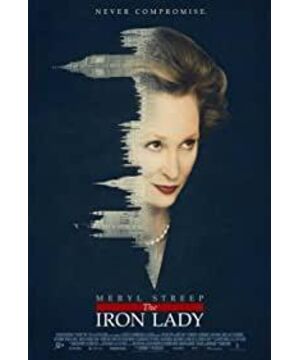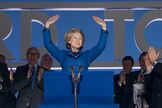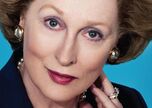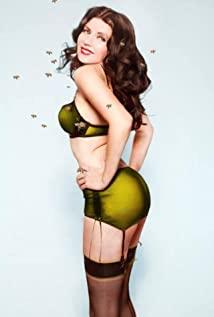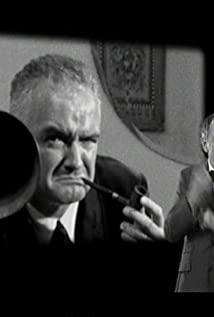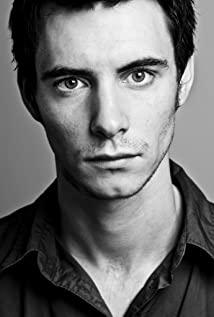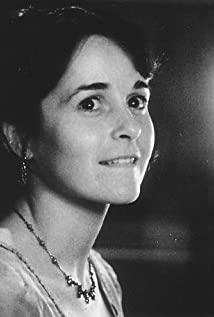Margaret Thatcher was a wonderful figure in the political arena back then. She not only conquered British politics as a woman, but was also a rare hardliner in the Western world. The reduction of welfare at home and the tough attitude of foreign countries finally brought Britain back to glory, and she also won the title of "Iron Lady". The public seemed more concerned about the difficulties she faced as a woman in retaking the Falklands. "Iron Lady" does not focus the story on major historical moments like "Thirteen Days". On the contrary, the film compares Mrs Thatcher's performance as a woman in a patriarchal society with flashbacks and other means. Mrs Thatcher's youth and old life interspersed in the drama conflict in Downing Street pulled her down from the altar, making her more real and lovely.
Although Meryl Streep won another Oscar nomination for this film and took home the best actress award, Streep's Mrs. Thatcher is still the image that Mrs. Thatcher left to the world, except for her voice and demeanor. Far from it. Mrs Thatcher was a thin woman with the sharp eyes of an eagle. Streep in "Iron Lady" is particularly gentle and lacks a certain kind of domineering. Streep once played a domineering and exposed role in "The Devil of Fashion", and it would not be difficult to imitate Mrs Thatcher, so the author infers that the mildness in the movie is the director's redefinition of Mrs Thatcher.
Margaret Thatcher in "The Iron Lady" is mainly in three age groups, namely the girlhood, the political participation and the old age. The three periods seem to be narratives, but in fact they are interlinked, without any extra ink. In the film, Mrs Thatcher was pure and lovely when she was a girl, and her admiration for her father and her love affair with Dennis made people feel warm. During the ruling period, Margaret Thatcher changed from an ordinary housewife to a leader, and she showed herself as a conqueror. After leaving the field in her later years, Mrs Thatcher suffered a stroke and severe memory loss. At this time, her thoughts about her late husband Dennis were touching. The two age groups before and after restore Mrs Thatcher to an ordinary woman. What the author tries to express is that the current situation has created a legendary "Iron Lady".
Streep won another Oscar for this film, but her performance in the film was actually somewhat controversial. In addition to his usual performance above the neck, Streep did not portray a "demon head" this time, and handled it relatively gently, which was quite different from the strong and iron-blooded Mrs Thatcher in people's impressions. In appearance, Streep is also too bloated. However, Mrs Thatcher's play in Downing Street can be described as moderate, and there is no deliberate bloodshed. The contrast of Mrs Thatcher's old age image is huge, which is the biggest highlight of the whole film.
"Iron Lady" is not the author's favorite movie. The emotional part of the film seems to be aimed at pleasing the elderly audience, and it is handled a little too hypocritically. But one thing is very interesting, and even worth pondering, that is, if a political bizarre like Margaret Thatcher was photographed in a feudal and authoritarian country, what would it look like? She must have participated in the revolution when she was a child. She was loyal to the revolution and the party when she was an adult. When she was old, she exerted her residual heat to influence the next generation. She was a great, glorious and correct person in her life. She would not be as hypocritical as Mrs. Thatcher in "The Iron Lady". Of course, this movie may also be touching and even tear-jerking, and it may take the golden statuette. I heard that it has already been filmed. It is called "Shen Jilan".
View more about The Iron Lady reviews


